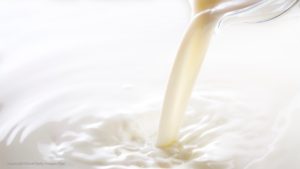A large Campylobacter outbreak associated with Ropelato Dairy in Ogden, Utah, is drawing attention to the state’s “Raw Milk for Retail” rules, legal code that allowed authorities to suspend Ropelato’s state-authorized operating permit while officials investigate the cause of so many illnesses.
 So far, 45 cases of Campylobacter infection have been reported by the Utah Department of Health. The size of the current outbreak is almost as large as the 2002 raw milk outbreak in Ohio that is cited in the Utah Administrative Code as one reason the state’s Department of Agriculture and Food — with FDA concurrence — “strongly advises against the consumption of raw milk” for health reasons.
So far, 45 cases of Campylobacter infection have been reported by the Utah Department of Health. The size of the current outbreak is almost as large as the 2002 raw milk outbreak in Ohio that is cited in the Utah Administrative Code as one reason the state’s Department of Agriculture and Food — with FDA concurrence — “strongly advises against the consumption of raw milk” for health reasons.
According to a review of Utah Rule R70-330 by Food Poisoning Bulletin, the state warns its residents not to consume raw, unpasteurized milk, but it permits farms to produce raw milk for on-premise retail sale or to sell it in an external retail outlet that is self-owned by the producer. When a licensed producer is implicated in an outbreak of food poisoning, the operator can be suspended “until such time as milk samples are pathogen free” and until an inspection can be performed at the facility by a compliance officer from the Department of Agriculture and Food, the rules state. Larry Lewis, a spokesman for the Department of Agriculture and Food, said inspectors have repeatedly visited Ropelato Dairy, “reviewing safety procedures, working with the owner to determine the source of the problem and helping devise corrective actions.” The dairy will be allowed to resume raw milk sales as soon as the milk consistently passes safety tests, he said.
The “Raw Milk for Retail” law in Utah carries special emphasis for sanitation and testing, but it clearly doesn’t endorse the safety of the products. One of the fundamental rules is that all raw milk must be labeled with these words: “Raw milk, no matter how carefully produced, may be unsafe.” The phrase must be conspicuous and the height of the smallest letter shall be no less than one eighth inch, the rules state.
Regarding sanitation, a long list of rules centers on the importance of keeping the milk cooled. The state mandates that operators keep a record of the milk’s temperature up until the time of bottling and sale. At higher temperatures (above 41 degrees F), pathogens like Campylobacter can rapidly multiply inside a container, increasing the infectious dose. The shorthand version of sanitation rules that pertain to raw milk farms is that “sanitation and operating requirements of all raw milk facilities shall be the same as that required on a Grade A dairy farm producing milk for pasteurization,” the record states.
The Utah Department of Agriculture and Food should have monthly records from Ropelato Dairy with testing results of the farm’s raw milk. The rules state that the department shall collect a representative sample of milk from each Raw for Retail farm bulk tank once each month. All samples shall be delivered to the State Dairy Testing Laboratory.
The rules also require testing of cows and goats to ensure the health of those animals and it demands that producers keep chickens and other animals out of the milkhouse, milk barn and traffic corridors frequented by cows and goats. In one other note from the rules, Utah does not allow cow-share programs. All raw milk must be sold by the producer on premise or at an authorized sited self-owned by the producer.




